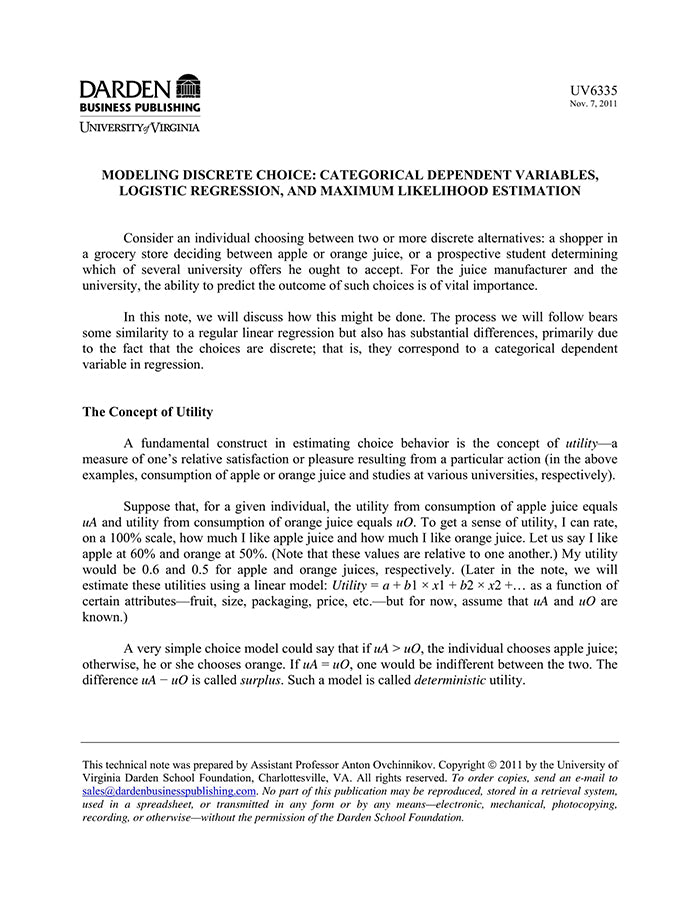Modeling Discrete Choice: Categorical Dependent Variables, Logistic Regression, and Maximum Likelihood Estimation
受取状況を読み込めませんでした
This technical note introduces business students to the concepts of modeling discrete choice (e.g., a consumer purchasing brand A versus brand B) using logistic regression and maximum-likelihood estimation. It draws the analogy between modeling discrete choice and building a regression model with a dummy dependent variable and on an example illustrates the need for estimating the probability of a choice rather than the choice itself, which leads to a special kind of regression - logistic regression. The note presents the concepts of utility and a random utility choice model, of which the logistic regression model is the most commonly used. It shows how choice probabilities can be constructed from utilities leading to the logit model. It then presents the maximum-likelihood estimation (MLE) method of fitting the logit model to the choice data. Working through a detailed example using Solver and accompanying spreadsheet model, the note gives students deep understanding for how MLE works and how it is similar and different to the standard least-squared estimation in linear regression. The note concludes by presenting the results of estimation using StatTools, a commercial statistical software. The note avoids the use of heavy mathematical machinery but still requires rudimentary knowledge of exponent and logarithmic functions, probability, and optimization with Solver, as well as familiarity with the "standard" linear regression. Applications include building of models for consumer choice, estimating price elasticity, price optimization, product versioning, product line design, and conjoint analysis.
【書誌情報】
ページ数:9ページ
サイズ:A4
商品番号:HBSP-UV6335
発行日:2011/11/7
登録日:2015/2/5


